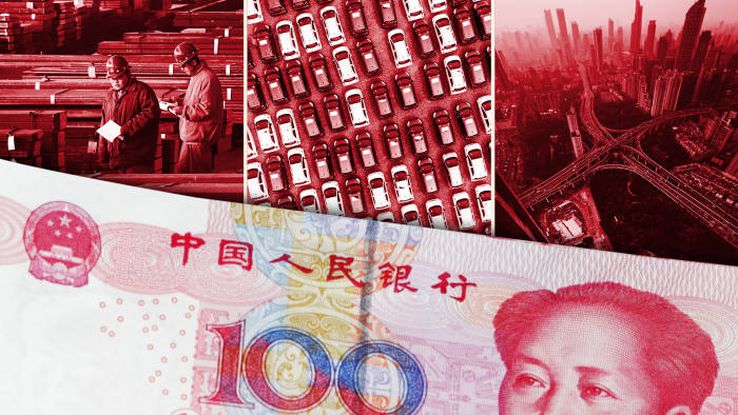He Weiwen, Senior Fellow, Center for China and Globalization, CCG
Jan 02, 2024
Three major issues make things difficult at present, but the country is more likely to have higher growth after adjustments have been made. Supply-side reforms, fiscal support and a firm opening-up policy will be the keys to success.
Liu Junhong, Researcher, Chinese Institute of Contemporary Int'l Relations
Dec 04, 2023
Over the 45 years since the China-Japan Peace and Friendship Treaty, the economic scale of the two countries has shifted. In addition, their economic structures have evolved, moving beyond an era of asymmetric dependence to a new phase characterized by mutual reliance.
Xu Hongcai, Deputy Director, Economic Policy Commission
Nov 10, 2023
Forecasts are not in line with reality. China’s economy is doing better than some analysts believe. Yet, alternative strategies must be found. A multi-pronged approach will cover the void left by real estate adjustments and lead China’s economy to a promising future.
Yu Yongding, Former President, China Society of World Economics
Oct 20, 2023
China’s economic performance has been inspiring considerable pessimism lately. In the second quarter of 2023, the Chinese economy grew by just 6.3% from a year earlier – a figure that is disappointing because of the low base in the second quarter of 2022, when pandemic restrictions were still suppressing economic activity. And in July, China’s consumer price index (CPI) entered negative territory for the first time since 2021, sparking fears of a deflationary spiral.
Fernando Menéndez, Economist and China-Latin America observer
Oct 03, 2023
China's economic growth has slowed while American politicians continue to advocate for protectionism, which is concerning as history shows that free markets are key to prosperity. China's struggles underscore the need for more economic freedom, not less.

Zhong Yin, Research Professor, Research Institute of Global Chinese and Area Studies, Beijing Language and Culture University
Sep 27, 2023
Incentives from the government are positive effect. In the next stage, the import and export power of private enterprises will be unleashed. This, in turn, will stimulate private investment. All factors point to a full economic recovery.
Yu Xiang, Senior Fellow, China Construction Bank Research Institute
Sep 22, 2023
The United States has seen consistent monthly growth throughout the year, but certain risk factors are accumulating. The future trajectory of the U.S. economy will depend on the relative development of economic growth drivers and the potential risks. China must respond thoughtfully.
Shang-Jin Wei, Professor, Finance and Economics at Columbia University
Sep 08, 2023
The Chinese economy is underperforming relative to its growth potential. Not only are investment and consumption demand weaker than hoped, but the country is facing the challenge of two Ds: deflation and debt. While consumer-price inflation is close to negative territory, producer-price inflation has already been negative for a year. At the same time, the private and public sectors have accumulated massive debts, owing to higher spending during the pandemic and the broader response to the easy-money conditions of previous years.
Zhang Jun, Dean, School of Economics, Fudan University
Sep 08, 2023
China’s aggregate demand has weakened significantly over the past three years. In addition to the enduring effects of China’s anti-COVID policy, the country has also been weighed down by the decrease in global demand. Exports fell by 14.5% year on year in July, a stark contrast from the robust 17.2% export growth recorded in July 2022. Given these downturn pressures, the government’s decision not to announce a massive stimulus package, as many had anticipated, has left foreign and Chinese observers deeply perplexed.
Alicia Garcia Herrero, Chief Economist for Asia Pacific at NATIXIS and Senior Fellow at Bruegel
Sep 07, 2023
China's economic slowdown is no longer the main contributor to global growth, but the rising strength of developing Asian economies offers hope for sustained global economic activity in 2023.
Back to Top

- China-US Focus builds trust and understanding between the U.S. and China through open dialogue among thought leaders.
- Our Offerings
- Topics
- Videos
- Podcasts
- Columnists
- Research Reports
- Focus Digest
- Stay Connected
-
Thanks for signing up!
- Get the latest stories from China-US Focus weekly.